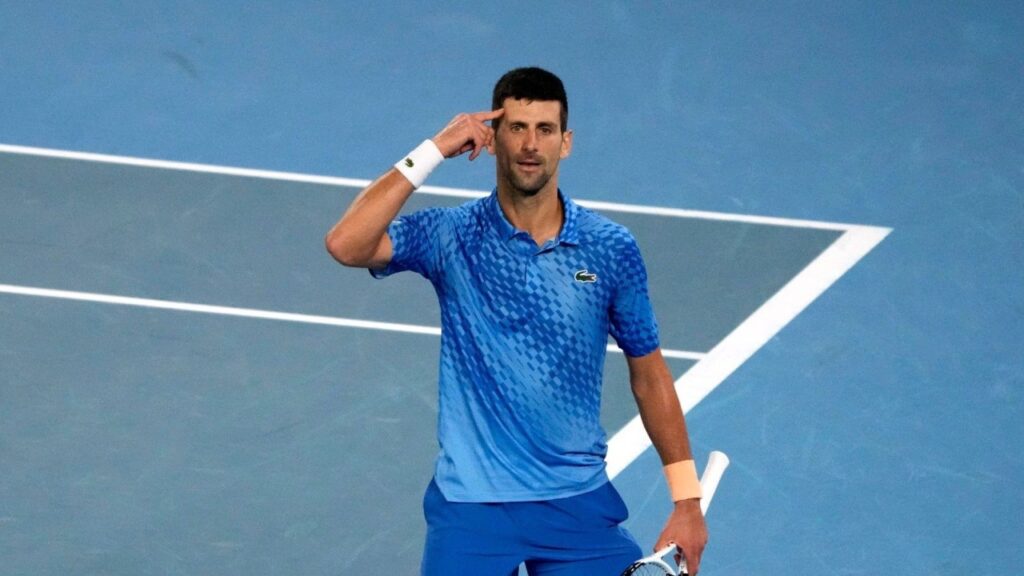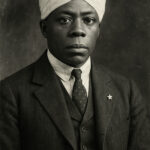Lessons from Novak Djokovic’s journey highlight the importance of hard work, mental strength, adaptability, and gratitude, which are crucial for achieving success in sports and life.
Mindset is everything when it comes to success. Novak Djokovic’s incredible journey highlights how resilience and a positive outlook can lead to triumph over adversity.
Jump to section
The importance of mindset in sports
The importance of mindset in sports cannot be overstated. Athletes often face challenges that test their mental fortitude. A strong mindset helps athletes stay focused during competitions and push through difficult moments. Having the right attitude can mean the difference between winning and losing.
Many successful athletes understand that talent alone is not enough. They work on their mental game just as hard as their physical skills. For instance, practicing visualization techniques allows them to imagine success in their minds, which can lead to better performance in real-life situations.
Mindset and Performance
A positive mindset enhances performance by reducing anxiety and boosting confidence. Athletes who believe in themselves are more likely to take risks and make bold moves during crucial moments. This willingness to take risks can lead to extraordinary achievements.
Building a Strong Mindset
To build a strong mindset, athletes can set realistic goals and celebrate small victories. Engaging in regular reflection and embracing a growth mindset are also essential. By viewing challenges as opportunities for growth, athletes can enhance their resilience and overall performance.
Novak Djokovic’s early challenges
Novak Djokovic faced many challenges in his early life that shaped his incredible journey to becoming a tennis champion. Born in Belgrade, Serbia, he grew up during a difficult time, as his country was facing political turmoil and war. Despite these hardships, Djokovic found solace in tennis, starting to play at a young age.
One of the major challenges Djokovic encountered was overcoming his physical and mental struggles. He had to deal with injuries that could have derailed his career. Staying focused and committed to his goals, he learned to push through these obstacles. Through determination and hard work, he developed a strong mindset essential for success.
Djokovic also faced intense pressure to perform from a young age. Expectations from family and fans were high, and he had to balance these pressures with his desire to enjoy the game. This experience taught him the importance of resilience and the value of a positive mindset in achieving his dreams.
His early experiences pushed Djokovic to work harder and build the mental strength needed to excel at the highest level. Each challenge he encountered fueled his desire to become not just a great player, but a legend in the sport of tennis.
The role of breathing techniques

The role of breathing techniques in sports is crucial for enhancing performance and managing stress. Athletes like Novak Djokovic incorporate various breathing exercises into their training routines to improve focus and maintain composure during high-pressure situations. These techniques help to calm the mind and increase oxygen flow to the muscles, which can significantly elevate performance levels.
One effective method is deep breathing, which involves taking long, slow breaths to increase lung capacity and promote relaxation. This technique teaches athletes to control their breath, allowing them to stay calm and focused when facing tough opponents or intense moments during a match. Practicing deep breathing can also help reduce performance anxiety.
Another essential breathing technique is rhythmic breathing, which helps athletes create a consistent pattern. This is particularly beneficial during long matches, as it helps to regulate heart rate and manage fatigue. By matching their breath to the rhythm of their movements, athletes can enhance their overall stamina and endurance.
Finally, visualization combined with breathing techniques can further enhance an athlete’s mental game. By imagining successful performances while practicing deep, controlled breaths, athletes can build confidence and prepare mentally for competition. This combination of physical and mental training is key to achieving excellence in sports.
Overcoming doubts and fears
Overcoming doubts and fears is a vital aspect of an athlete’s journey, especially for someone like Novak Djokovic. Every athlete faces moments of uncertainty, where fear of failure or doubt in their abilities can creep in. Recognizing these feelings is the first step towards managing them effectively.
One effective method Djokovic uses to combat doubt is positive self-talk. By encouraging himself with affirmations, he builds confidence before matches. This technique helps shift focus away from doubts and redirects energy towards belief in his skills. For instance, he might remind himself of past successes and how he has overcome obstacles before.
Another vital strategy is embracing failure as a learning experience. Djokovic understands that setbacks can provide valuable lessons. Instead of letting a loss define him, he analyzes what went wrong and uses that knowledge to improve future performances. This growth mindset empowers athletes to face fears head-on and come back stronger.
Additionally, practices like visualization can help athletes see themselves succeeding, which lessens fear and builds confidence. By imagining successful outcomes, they can transform their mindset and prepare to tackle challenges with a more positive outlook. This combination of strategies can significantly impact an athlete’s ability to overcome doubts and fears while competing.
Mindfulness in high-pressure situations
Mindfulness in high-pressure situations is a powerful tool for athletes aiming to achieve peak performance. Athletes like Novak Djokovic often encounter moments of extreme pressure during competitions. Practicing mindfulness helps them stay present, reducing anxiety and improving focus. When distractions and nerves arise, staying mindful allows them to concentrate on the task at hand.
One effective mindfulness technique is breath awareness. By focusing on their breathing, athletes can ground themselves in the present moment. This not only calms the mind but also helps regulate heart rate, allowing for clearer thinking and better decision-making during crucial points in a match. Athletes learn to separate their emotions from their performance, leading to a more controlled and confident approach.
Another aspect of mindfulness is visualization. This involves mentally rehearsing successful plays and scenarios before they happen. By vividly picturing themselves succeeding, athletes can build their confidence and decrease feelings of pressure. This practice not only prepares them physically but also mentally for the challenges they will face in competition.
Finally, mindful reflection is essential after the competition. By evaluating their performance without judgment, athletes can learn from their experiences and identify areas for growth. This continual practice of mindfulness not only enhances performance but also contributes to the overall mental well-being of the athlete.
Building resilience through adversity

Building resilience through adversity is an essential quality for athletes, especially for those like Novak Djokovic. Throughout his career, Djokovic faced numerous challenges that tested his strength and determination. These experiences helped him develop a resilient mindset, allowing him to bounce back stronger after setbacks.
One key component of resilience is learning how to cope with failure. Djokovic has faced tough losses in matches that could have discouraged him. Instead of letting these defeats define him, he analyzes what went wrong and uses those lessons to improve future performances. This mindset transforms challenges into opportunities for growth.
Another factor in building resilience is having a strong support system. Djokovic relies on his family, coaches, and team to provide encouragement during hard times. This support helps him maintain perspective and keep his goals in sight, even in the face of adversity. The emotional backing from loved ones reinforces his belief in himself and his abilities.
Additionally, practicing self-care and maintaining a healthy lifestyle play a vital role in fostering resilience. Djokovic focuses on physical health through proper nutrition, training, and recovery. By ensuring that he is physically fit, he can handle the mental and emotional pressures that come with being a top athlete. This holistic approach to resilience empowers him to face challenges head-on and thrive under pressure.
The power of gratitude in success
The power of gratitude in success is a vital yet often overlooked aspect of an athlete’s journey. For individuals like Novak Djokovic, practicing gratitude plays a significant role in maintaining a positive mindset and enhancing overall performance. When athletes express gratitude, they shift their focus from what they lack to what they have, creating a healthier perspective.
One way gratitude impacts success is by fostering resilience. By acknowledging the support from coaches, family, and teammates, athletes build a sense of community and belonging. This emotional support helps them navigate challenges and setbacks more effectively. For instance, when Djokovic reflects on his journey, he often mentions how grateful he is for his coaches and their guidance during tough times.
Gratitude also enhances mental well-being, which is crucial for peak performance. Athletes who regularly practice gratitude tend to experience less stress and anxiety. This emotional balance allows them to compete with a clear mind. For example, Djokovic incorporates gratitude into his daily routine, often by reflecting on positive experiences before matches, which helps him enter the game with a calm and focused mindset.
Furthermore, expressing gratitude can lead to stronger motivation. When athletes appreciate their achievements, regardless of their size, it fuels their desire to set and reach new goals. This motivation drives them to push harder and strive for excellence. Overall, the practice of gratitude not only uplifts spirit but also propels athletes toward greater success in their careers.
Lessons from Djokovic’s journey
Lessons from Djokovic’s journey provide valuable insights for both athletes and anyone striving for success. One of the key lessons is the importance of hard work and dedication. Djokovic’s path to becoming a top tennis player was not easy. He faced numerous obstacles, including injuries and tough competition, yet his strong work ethic kept him moving forward. This teaches us that consistent effort can lead to great achievements, even in the face of challenges.
Another significant lesson is the value of a strong mindset. Djokovic often emphasizes the importance of mental strength in his success. He practices techniques like visualization and positive affirmations to build his confidence. This highlights how a positive attitude can help individuals overcome self-doubt and perform at their best under pressure.
Additionally, the significance of adaptability is evident in Djokovic’s journey. As the tennis landscape changes with new players and different playing styles, he continually adjusts his strategies to remain competitive. This adaptability allows him to evolve his game and stay at the top. It teaches us that being flexible and open to change is essential for long-term success.
Finally, Djokovic’s story emphasizes the importance of seeking support. He relies on his coaches, family, and friends. This support system helps him stay grounded and focused. His journey shows that collaboration and asking for help can be vital in achieving one’s goals, reminding us that we are not alone in our pursuits.
In conclusion, embracing the lessons from Novak Djokovic’s journey
can greatly enhance not just athletic performance but success in all areas of life. His dedication and hard work show that consistent effort leads to achievement, no matter the obstacles. Mental strength and a positive mindset are crucial, helping us overcome self-doubt and perform our best under pressure.
Moreover, adaptability in the face of change allows us to stay relevant and competitive. Djokovic’s use of support from family, friends, and coaches reminds us that collaboration is important. By learning from his experiences, we can apply these lessons to our journeys, fostering resilience and achieving our goals.
Ultimately, Djokovic’s path illustrates that with determination, a positive mindset, and a strong support system, anyone can overcome challenges and achieve greatness.
FAQ – Frequently Asked Questions About Lessons from Djokovic’s Journey
What are some key lessons from Djokovic’s journey?
Key lessons from Djokovic’s journey include the importance of hard work, maintaining a strong mindset, being adaptable to change, and seeking support from others.
How does mental strength impact an athlete’s performance?
Mental strength helps athletes overcome self-doubt and pressure, allowing them to focus and perform their best during competitions.
Why is adaptability important for athletes?
Adaptability allows athletes to adjust their strategies in response to new challenges and competition, helping them stay relevant and competitive.
What role does gratitude play in success?
Gratitude fosters resilience and improves mental well-being, allowing athletes to maintain a positive perspective and find motivation in their achievements.
How can athletes build a strong support system?
Athletes can build a support system by cultivating relationships with coaches, family, and friends who provide encouragement and help them navigate challenges.
What can non-athletes learn from Djokovic’s experiences?
Non-athletes can learn the value of hard work, a positive mindset, resilience through adversity, and the importance of support systems in achieving their goals.






